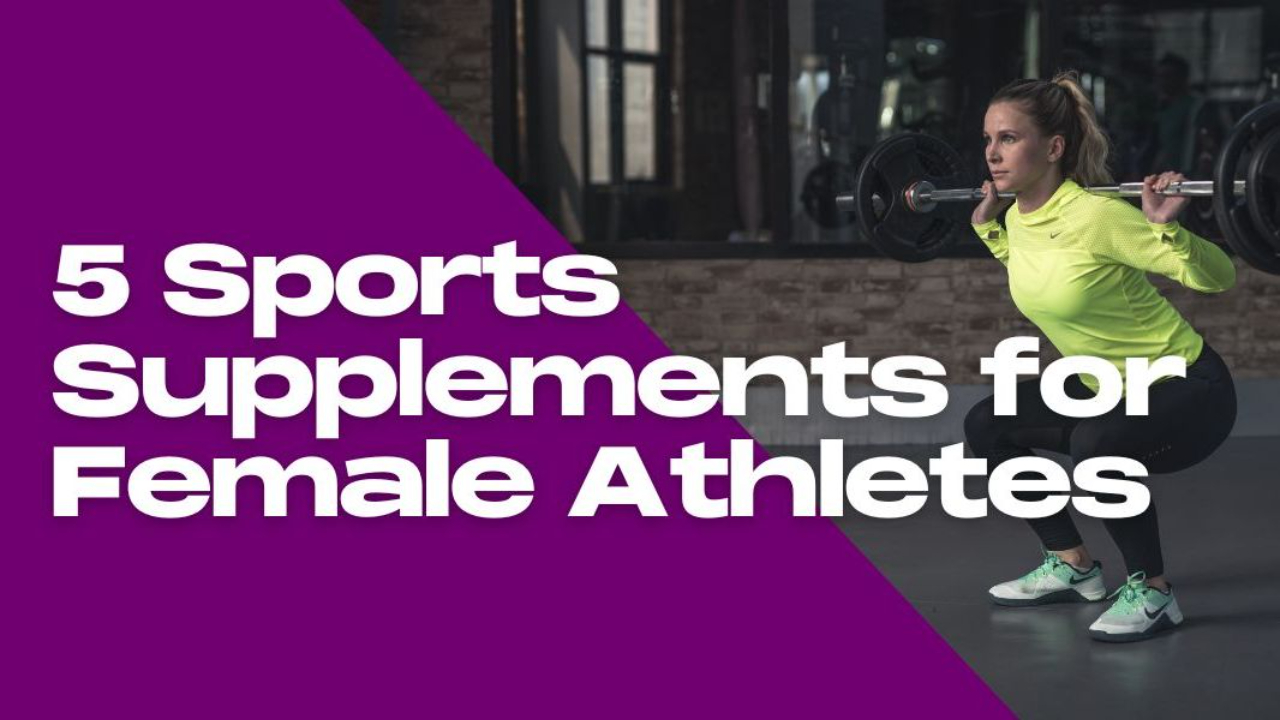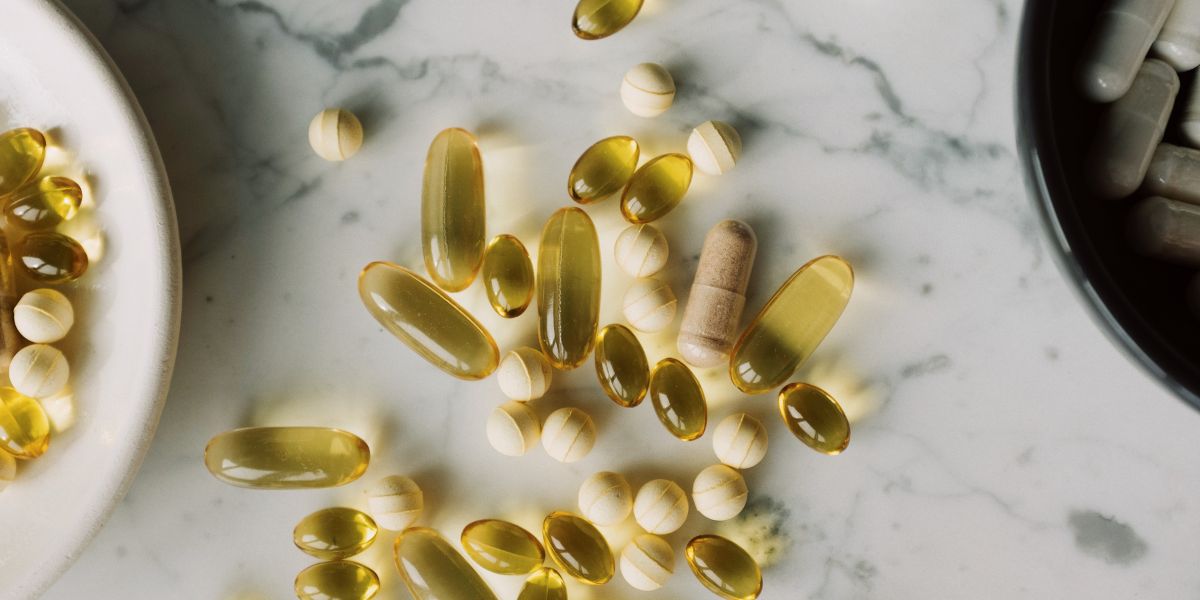
5 Sports Supplements for Female Athletes
Jun 14, 2023Build muscle, boost performance, improve recovery, and more with these key ingredients.
By Selene Yeager
Since the first athletes lined up at a starting line, took the field for a match, or otherwise entered a competitive arena, human beings have been taking supplements in the quest to be stronger, faster, and generally feel, perform, and recover better. And that’s exactly why we take them today. The big question is do we need them? And if so, which ones?
Those are hard questions to answer when you’re staring down a multibillion-dollar industry where the research that has been done has been done mostly on men. That said, if you sieve through the literature, there are a few ergogenic aids that rise to the top. We just need to bear in mind that supplements are exactly that–supplemental. They’re additives that fill in gaps and/or provide extra assistance when you’re training hard, competing, and/or asking a lot of your body. They’re not a substitute for good nutrition, which should always come first, and is the foundation for health.
With that, here are 5 of the best sports supplements for female athletes. (Note: There are plenty of supplements, such as iron, magnesium, B12, and others, that can help improve performance if you have low levels. You can get a blood test to check for these if you have concerns.)
Creatine
This one will not surprise anyone who has been following the women’s sports performance space for the past few years. As nutritional physiologist Shannon O’Grady, PhD, recently said on the Feisty Women’s Performance Podcast, creatine is having a well-deserved moment. “I love that creatine is having a moment because creatine has been waiting for its moment for decades…there has been so much research done on creatine.”
You can see a summary of that research in this 2021 paper aptly titled Creatine Supplementation in Women’s Health: A Lifespan Perspective. To sum it up, creatine is a naturally occurring substance found in your muscle cells that helps them produce energy during high-intensity exercise and heavy lifting. As women, our muscle creatine stores tend to be 70 to 80 percent lower than our male counterparts. If we’re vegan, vegetarian, or don’t eat much meat, our stores are likely to be lower.
When you combine creatine supplementation with strength training, you can generate more power and get more benefits from your training sessions. Creatine supplementation has also been shown to improve mood and cognition. Research has found a significant inverse relationship between dietary creatine and depression
For women in and beyond the menopause transition, research finds that creatine supplementation can help counteract the menopause-related decline in muscle, bone, and strength by reducing inflammation, oxidative stress, and serum markers of bone resorption, while also resulting in an increase in bone formation. A recent study on older, untrained women found that those supplementing with creatine doubled the strength gained from a 10-week resistance training program compared to those not using creatine.
Creatine is largely considered safe. Creatine supplementation can increase blood creatinine levels in lab tests, but, as noted in this review on Examine.com: “Although taking creatine may increase creatinine levels, long- and short-term studies have found that creatine doses ≤10g/day don’t impair kidney health in people with healthy kidneys.” If you have existing kidney issues, it’s best to consult with your doctor. There is some evidence that creatine supplementation may increase allergen-induced asthma. Further research has found that low to moderate-intensity aerobic exercise causes anti-allergic effects in the lungs and appears to override these allergen-sensitizing effects. But it’s good to make note if you have these existing airway issues.
The generally recommended dose is 3 to 5 grams a day. The form to use for maximal absorption is creatine monohydrate.
Beta Alanine
Beta alanine often flies under women’s radar, but if you train hard and/or are competitive, it’s one to put on your map. Beta alanine is a non-essential amino acid (meaning your body produces it so you don’t have to get it from food) that helps form carnosine, which your body stores in your muscles and other tissues. Carnosine acts like a buffer in your body, helping to reduce acid accumulation in your muscles during exercise, which reduces fatigue and improves athletic performance. It may also improve muscle firing rates and recovery. So it can be especially good during interval workouts.
One 2018 study found that beta alanine supplementation improved performance in a 10K running time trail and reduced lactate concentration in a group of active adults. Other research on endurance athletes like cyclists have had mixed results with some studies finding improvement, and others not finding the same benefits.
For women, especially with age, however, it’s worth a look, explained exercise physiologist Abbie Smith-Ryan, PhD, on the Hit Play Not Pause podcast. “As our muscles get smaller with age and we switch to having more type one muscle fibers, our carnosine levels also decline. So beta alanine can help you be a little more fatigue resistant, recover better, and get more out of your training.”
Daily supplementation with 4 to 6 g of beta-alanine for at least 2 to 4 weeks has been shown to improve exercise performance. The most common side effect is a pins-and-needles, tingling sensation on the skin, especially at the higher end of that recommended dosage. You can avoid that by taking two separate doses over the course of the day. You also don’t need to take it continuously, but can cycle on and off it as your training ramps up and tapers down in and off season.
Essential Amino Acids
Women need protein. We’ve all gotten that message loud and clear. Adding an essential amino acid (EAA) supplement into your repertoire helps fill the gaps when you’re training a lot and/or finding it challenging to consume the 20 to 40 grams of protein per meal you need to support your physical activity.
Amino acids are literally building blocks of life and they make up your muscles as well as help in the synthesis of hormones, neurotransmitters, and other tissues. Some amino acids can be converted into glucose or other energy substrates to provide fuel for your body during exercise.
You need about 20 amino acids to make all the proteins found in your body. There are nine essential amino acids (EAAs) that the human body can’t make on its own and that we need to get through diet. A subset of amino acids called branched chain amino acids (BCAAs), specifically leucine, isoleucine, and valine, make up about one-third of the muscle protein in your body and are particularly important for muscle metabolism.
Leucine, in particular, promotes muscle protein synthesis (a.k.a. the process by which muscles repair and build). Research reports that even when women eat less total protein, when the protein they eat is relatively high in leucine, it stimulates muscle protein synthesis as well as if they’d eaten more total protein.
The International Society of Sports Nutrition recommends aiming for at least 10 to 12 grams of EAAs and 1 to 3 grams of leucine from your protein-rich meals and/or snacks, in addition to a balanced array of essential amino acids. Research suggests that older women may need 3 to 4 grams of leucine per meal for maximal stimulation of muscle protein synthesis. An amino acid supplement that contains BCAAs can help you get what you need.
Vitamin D

Vitamin D plays a crucial role in muscle health and function, bone formation, immune function, and overall performance. It’s also one of the micronutrients that we typically run low on. One meta-analysis including more than 2,300 athletes found that 56 percent of them had vitamin D inadequacy–a risk that significantly increased in the winter and spring seasons.
It's worth noting that athletes may have higher vitamin D requirements compared to the general population because of our increased physical activity levels. Research finds that low vitamin D levels may have negative effects on muscle strength, power, and endurance and increase stress fractures and other musculoskeletal injuries.
You can get vitamin D through a combination of sensible sun exposure and dietary sources, including fatty fish (such as salmon and mackerel), fortified dairy products, egg yolks, and some mushrooms. For many women, supplementation is the best way to avoid running low.
The recommended dietary allowance, or RDA, for vitamin D is 600 international units (IU) per day for young adults and 800 IU per day for adults older than 70. Experts often advise taking a supplement containing 800 IU of vitamin D3 (the most effective form) per day to maintain normal vitamin D levels. Some athletes will take doses ranging from 1,000–2,000 IU. The Upper Tolerable Intake Level in the United States and Canada is 4,000 IU per day (IU/day).
Joint Support
Women are more likely to develop certain musculoskeletal injuries as well as osteoarthritis than men. And female athletes put high demands on their musculoskeletal system. Research is ongoing with various joint support supplements such as collagen, glucosamine, eggshell membrane (which contains Type I collagen, glucosamine, chondroitin, and hyaluronic acid), and Boswellia, but there’s evidence that they can help support joint health and reduce joint pain.
Two 2022 reviews on collagen peptides, for instance, reported promising results. One found that when paired with resistance training, collagen peptide supplementation can help promote connective tissue recovery, decrease pain, and improve strength and body composition. The other found that collagen-derived peptides may help in the prevention and treatment of tendinopathy (though more research is needed).
Eggshell membrane showed the potential to reduce pain and stiffness in one 2022 randomized clinical trial. Likewise, a 2020 systematic review and meta-analysis showed Boswellia reduced pain and stiffness and improved joint function.
Joint health support supplements may be especially helpful for women as they hit midlife and menopause and the muscle and connective tissues can become less robust and osteoarthritis becomes more common. (Though not a “sports supplement, there is also evidence that some forms of menopausal hormone therapy can help with joint pain specifically related to menopause.)
Dosages vary according to each supplement. If you have joint issues/concerns, it can be worth trial and error to find one that works for you. Anecdotally, we hear from many women in our community who swear by these aids to help keep them active and pain and injury free.
Get Feisty 40+ in Your Inbox
We hate SPAM. We will never sell your information, for any reason or send you emails that suck!

